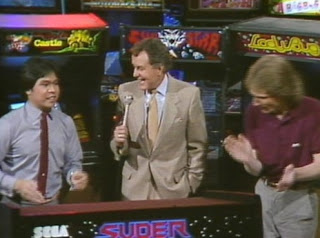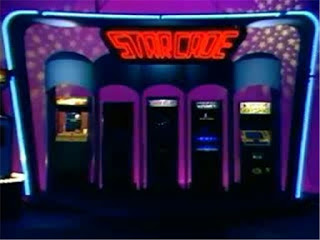Nowadays, it’s not hard to find gaming based shows to watch. Just turn on YouTube and you can find everything from The Angry Video Game Nerd to Game Grumps, and even The Retro Leagues live recording of their weekly audio podcast. You can hear and see people talk about games, review them, mercilessly mock them, or even just watch play-through’s. There’s even a whole app/website for live play-through’s called Twitch.
Before that though there had been many attempts at video game based programs over the years. Some in the form of cartoon shows, others in the form of tech reviews, and even some in a similar format to what we now see on YouTube. For the most part many of these shows were either short lived or just never had enough viewership to give them longevity or notoriety. In 2002 hot on the heels of the spike in video game playing thanks to the PlayStation 2, a new television network geared around video gamer’s known as G4 was launched on cable and satellite networks. The network would start off strong with gamer based programming, and would even add to geek culture a bit. With the advent of YouTube and other gaming based websites, G4’s existence was short lived and too little, too late for the average gamer. The network eventually sank into the dregs of showing things that would make Spike TV watchers blush, or shows that verged on being infomercials in the middle of the day. I remember turning the channel on one day for my son while he was in the hospital awaiting getting his tonsils taken out, and being greeted by a rather raunchy spring break bikini contest. With all that said, G4 did accomplish one thing for retro-gaming’s looking for some nostalgia, they gave us the original recordings of the of the 1982-1984 seasons of Starcade, many of which still exist today on YouTube, ripped directly from G4.
So what is Starcade? Now, I had heard about a game show based on arcade gaming mentioned in passing on a number of gaming podcasts before. With a lot of other content available on YouTube I never really thought about checking out the old game show before. One day while looking for something to fill a gap of a few minutes on YouTube, Starcade came up as one of my recommendations. Considering I’ve been looking for great arcade ROM’s to eventually add to my X-Arcade I had a hunch the show would be a great resource, and that hunch paid off. It’s hard to describe watching an episode of Starcade for the first time, since the show was simultaneously what I did and didn’t expect it to be. The main concept of the show is that its part quiz show and part head to head arcade play, with the former being integral yet minor. Essentially, the contest pits two contestants or teams against each other, with the ultimate goal of winning an arcade cabinet, although sometimes other prizes like a jukebox, or robot where offered as the grand prize.
Each contestant or team, would take to a standard game show podium and be asked an arcade based game question with an A or B answer choice. If a contestant buzzed in and answered right, the contestant could pick what arcade game to play, but if they answered wrong the game choice would fall to their opponent. Each player would then play the chosen game for 50 seconds, and the final scores would be added to each players podium score. The show would proceed like this for two rounds and at the end of the second round the score based winner would go to another board of TV’s and be asked what game pops up on each TV, answer four right here and a player could walk away with everything from a Texas Instruments computer, to a Colecovision, or other computer or gaming system. If the player got only three right though they would qualify for a lesser prize, which was usually metal detector, or occasionally a Coleco Mini Arcade. After that it would be one more round of quiz/arcade gameplay and the ending score based winner would proceed on to the final round. Of course before I get there I also need to mention the mystery game, the players knew all four games they had the option of picking but one would occasionally have a bonus prize added to it if a player picked it. As for the final round the player would have 30 seconds to beat a particular score, the score was supposedly “the average score of 20 people playing the game”, of course with how unusual it was for a player to beat that score I have to ask myself if these 20 people were ringers, or if the score was real at all, occasionally some people did win though.
What I did and didn’t expect?
As far as what I did expect, I expected to see head to head arcade gameplay, but expected it to be set up as games chosen by the producers although with a similar time or lives scoring nature as the game itself actually had. As far as prizes I did expect consoles of the time to be prizes, but I also expected perhaps cash or trips would be common prizes too. I was pleasantly surprised by what I saw since the game had a nice pacing to it that was fun, and also fair.
What I didn’t expect, first of all was some of the differences in age between contestants. The contestants are “chosen by matched gaming skills”, but this could result in some interesting match ups. One that sticks out is the 40+ year old magician, playing against what must have been a 7 or 8 year old girl, or the next odd one was with a 6’4″ African American gentlemen, versing a tiny 5 year old Asian boy, but these weren’t the only two odd match ups. There was also team play, in one instance it pitted two sets of teenage twins against each other which one was fun to watch and pretty equal, but a lot of the other team play was parent and child. It’s was interesting to see how many moms got dragged on to the show by their children, and the slightly annoyed looks some of the kids had when there moms where clueless about Centipede or some other game. Sometimes though the moms or dads where pretty on it, and you could tell a stop at an arcade machine, or arcade was part of the normal bonding with their kid. There was also one other team episode in which past winners played it out in teams for a Hawaiian vacation and some other higher value prizes.
The other thing I really didn’t expect was the sense of nostalgia when watching this show. To be honest I was a bit young for the arcade experience at the time, but a lot of it is still pretty clear in my mind. Even though I was still a little kid when this was going on I remember the arcade game crazy of the early 80’s, and how you could find an arcade machine just about anywhere, even the back stairwell of a Ben Franklin’s dime store where my Mom would let me play Moon Patrol, or the Q*Bert machine my brother and sister would play at my folks favorite Mexican restaurant. Back then arcade gaming wasn’t geek culture it was the cool thing to do, and even Pac-Man had celebrity status. For a show like Starcade to have been on TV at the time just goes to show how popular arcade gaming had become.
 |
| Geoff Edwards |
Starcade would only air for two seasons but would put out an astonishing 133 episodes in that time, plus four pilots. One of the pilots actually featured Alex Trebek (yes, the Jeopardy guy) as a test host, “I’m sorry the answer was ‘What is Sinistar?’ you didn’t answer in the form of a question”, in case you don’t remember before Trebek was the up-tight smarty-pants host of Jeopardy he was the host of a lot of other game shows. By the time the show went into production with WTBS (what we now know as just TBS), the producers had chosen another veteran game show host, Mark Richards to host the show. Richards was a bit stiff in the role, and outside of watching him try to flirt with a few of the adult female contestants, seemed a bit put off with some of the shows far younger contestants. It was eventually decided to replace Richards, and by episode 24 Geoff Edwards would replace him and stay host of the show till its last episode. The differences between Richards and Edwards as host are pretty noticeable, especially since Edwards seemed to be a lot more comfortable children and seemed to actually have attempted to play many of the games featured on the show giving him some “street cred” as a host when introducing and talking about the games. On top of that Edwards had a fatherly or even grandfatherly character to him that seemed to make contestants feel a lot more comfortable on stage.
Although, I’ve dug through a few different sources I haven’t been able to find out if there was any particular reason why Starcade didn’t go any further than two seasons. I can only attribute it to the fact that despite the home console gaming crash of 83′, there was more of an emphasis on home consoles by 1984, and the Arcade game fad was passing. The show would go on to inspire a few other shows later on down the line based on home consoles, but nothing arcade inspired would ever been seen on TV again. The closest we have come in the past few years are movies like King of Kong, and Man vs Snake in which the world of competitive arcade play are brought to the foreground, and some of the E-Sports competitions.
To be honest I’m glad I took the time to watch this show since it was a wonderful glimpse of what the world of arcade gaming was, and to get the sense of community between arcade gamers at the time. As I also stated it’s been a wonderful resource for ROM ideas as well, since Starcade has introduced me to a lot of titles I have either forgotten, or I didn’t even know existed since they never had home console ports, I could give Zoo Keeper as one example.
If you would like to see Starcade for yourself there are two places you can watch it. One is YouTube, as I mentioned above, be sure to type in “Starcade Game Show“, or through the Starcade Fan Site which is another great resource.
Have Fun!!


Leave a Reply